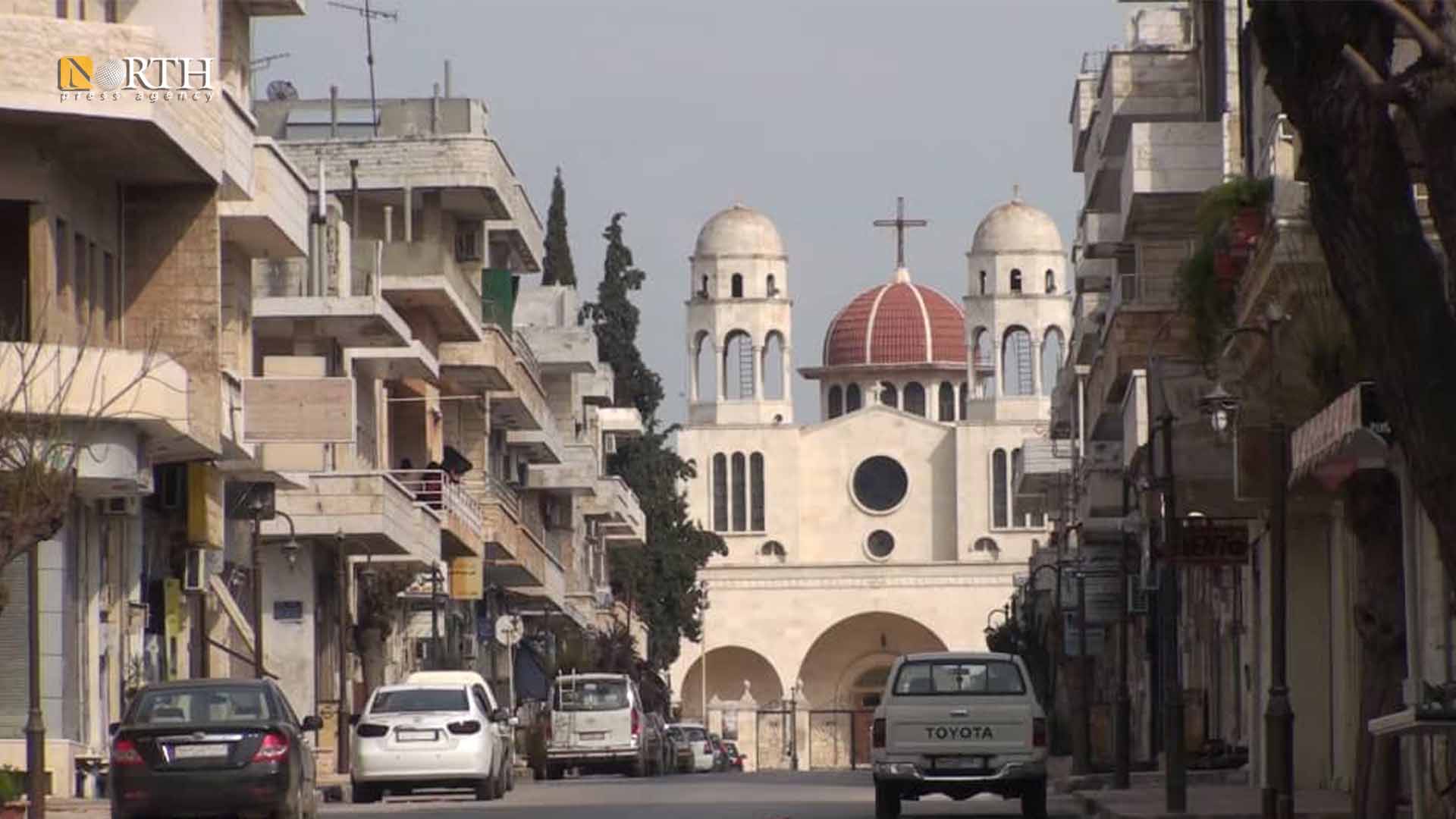ALEPPO, Syria (North Press) – Elias Sa’deh closes the door of his brother’s house in al-Sulaymaniyah neighborhood in Aleppo, north Syria, after he emigrated to France early this month and sold most of his properties.
“The house which was full of life yesterday has become empty after Gabi decided to leave with his family. Maybe they will never ever return to it.”
Since the beginning of the Syrian war, most Christians in Aleppo emigrated, especially after the armed factions took over neighborhoods of the city in mid-2016. Locals say that “the Christian-majority neighborhoods became almost empty.”
Aleppo has the largest Christian community in Syria, consisting mainly of Assyrian/Syriacs and Armenians, many of whom fled the genocide by the Ottoman state during the early 20th century.
The percentage of Christians in the city decreased from 36% in 1944 to 4% in 2016 due to their emigration after the battles in the city, according to research conducted by the Arab Reform Initiative under the title of “Aleppo Christians: A Turbulent History and the Path Ahead.”
The most important reasons for the mass emigration of Christians are the lack of security, the prevalence of extremism and intolerance towards minorities by armed factions, economic and living difficulties, and the government’s failure to reassure Christians, according to Christians in Aleppo.
Moreover, the presence of Turkey, which Christians describe as their historical enemy, in the countryside of Aleppo along with pro-Turkish extremist factions, has increased the fears of the Christians in the region.
Gabi made his decision to leave after he sold the restaurant he owned in al-Maidan neighborhood of Aleppo, his car, and his farm north of the city, leaving only the house that he “could not abandon,” according to his brother.
Repeated scenario
Father Matanios Haddad of the Roman Catholic Church in Aleppo told North Press, “more than 80% of the Christians of Aleppo have left the city since the beginning of the war, and the emigration is still ongoing.”
The scenario that is taking place now “is similar to what happened to the Christians of Syria under the Ottoman Empire, where Christians fled the massacres and the religious persecution of the Ottoman authorities,” Haddad added.
“A Christian cannot live in a hostile environment with fragile economic and security conditions while the government is unable to find solutions to these problems,” he explained.
Haddad fears that “Aleppo in particular, and Syria in general, will be empty of Christians in the near future if conditions continue like this.”
“The house and the neighborhood contained memories of Gabi’s childhood and youth; for him, the city of Aleppo was part of his soul,” Elias Sa’deh adds.
However, the excessive difficulties that Gabi faced forced him to leave in order to secure a better future for himself and his family.
Sa’deh says that only two apartments, inhabited by elderly people, are left out of 12 of Christians in a building that houses Gabi’s home. “The rest preferred to leave,” he says.
Successive migrations
George Hajjar, a doctor from the city, told North Press that “the neighborhoods of Sulaymaniyah, Awja al-Jib, al-Midan, al-Aziziyah, al-Siryan, al-Jadida, and Bawabat al-Qasab and al-Til were completely inhabited by Christians and also home to Christian churches and schools.”
“However, since 1960s, waves of Christian emigration began, through the 1980s to the current Syrian crisis, where their number decreased catastrophically,” he added.
Though Christians distanced themselves from the war as much as possible, still the security and economic effects of the war affected them, Hajjar said.
Residents of Aleppo bemoan the emigration of Christians abroad, especially the practical and economic elites.
According to Hajjar, Christians need “security assurances and political and economic guarantees” to preserve those who have not yet migrated.

